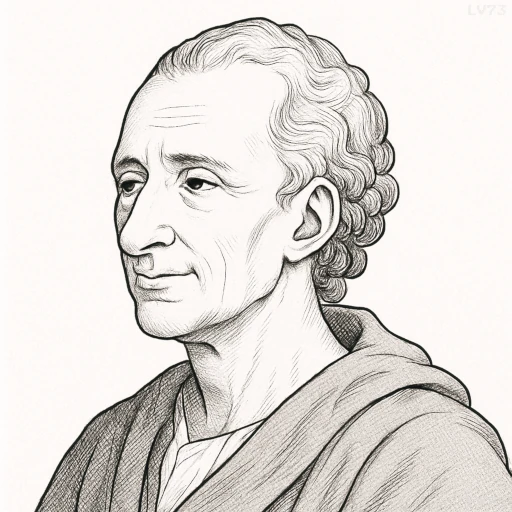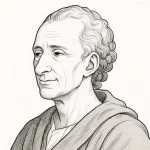“Man, as a physical being, is like other bodies governed by invariable laws.”

- January 18, 1689 – February 10, 1755
- French
- Political Philosopher, Jurist, Author of The Spirit of the Laws
table of contents
Quote
“Man, as a physical being, is like other bodies governed by invariable laws.”
Explanation
Montesquieu presents a view of human nature grounded in natural law, asserting that human beings, in their physical existence, are subject to the same universal principles that govern all matter. This reflects the Enlightenment belief that nature operates through fixed, discoverable laws—whether in physics, biology, or human behavior. Just as planets follow gravitational paths, human bodies and their impulses are subject to consistent, observable forces.
However, this mechanistic view of man does not negate free will or moral agency; instead, it sets the foundation for Montesquieu’s broader theory of law. In The Spirit of the Laws, he argues that laws—whether natural, civil, or political—must be designed in accordance with the conditions and tendencies of human nature. Understanding man as a physical and social being allows lawmakers to craft systems that align with how people actually behave, rather than how they should behave in theory.
In modern terms, this idea anticipates insights from biology, psychology, and sociology, where human behavior is studied as a product of both natural instincts and social structures. Montesquieu’s statement encourages us to recognize that effective governance and moral philosophy must begin with a clear-eyed understanding of human nature—one that respects the laws of the body as well as those of the mind.
Would you like to share your impressions or related stories about this quote in the comments section?



